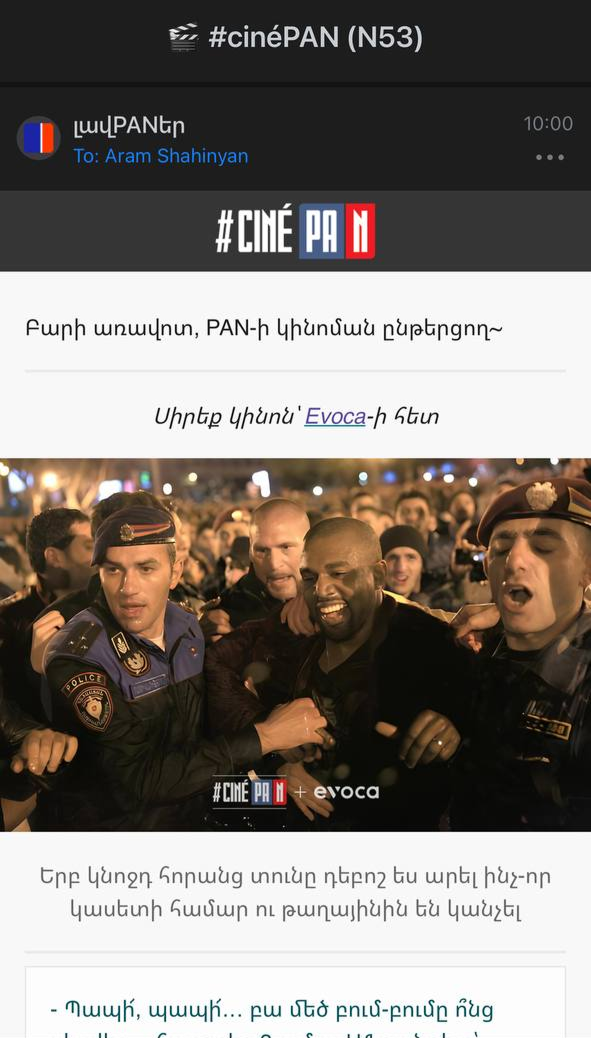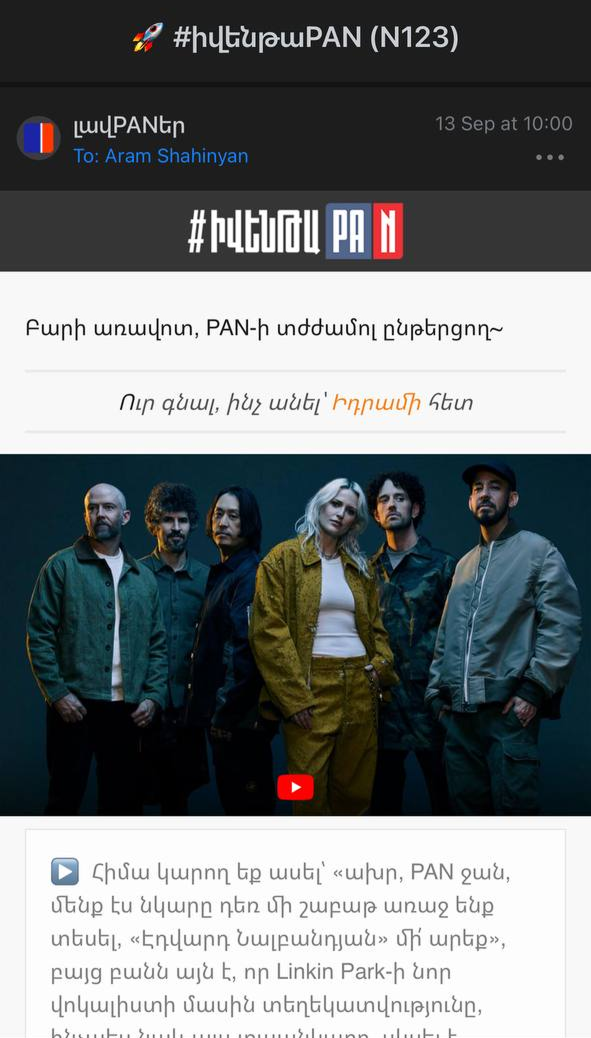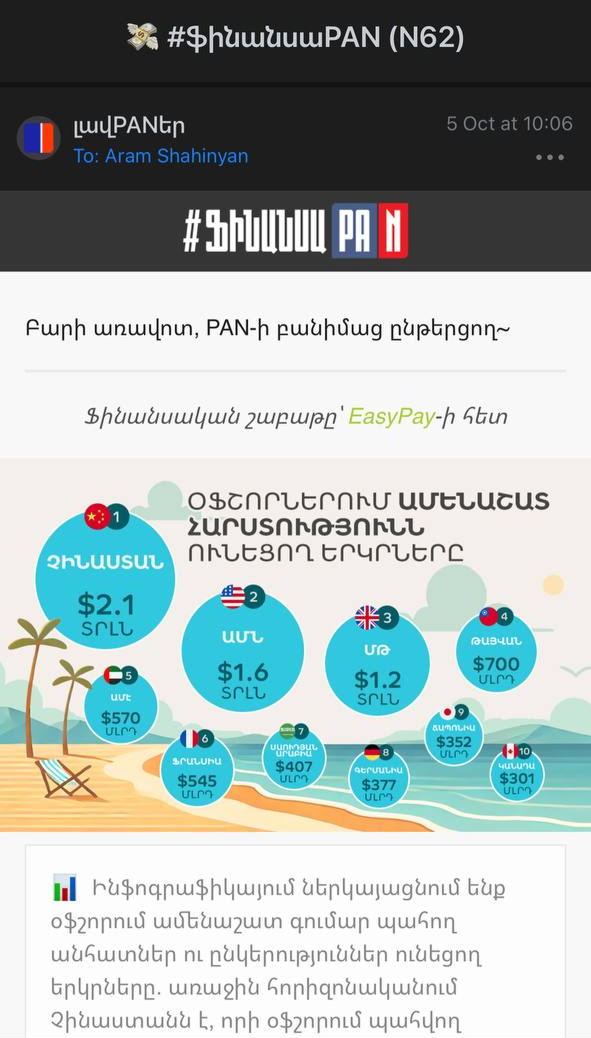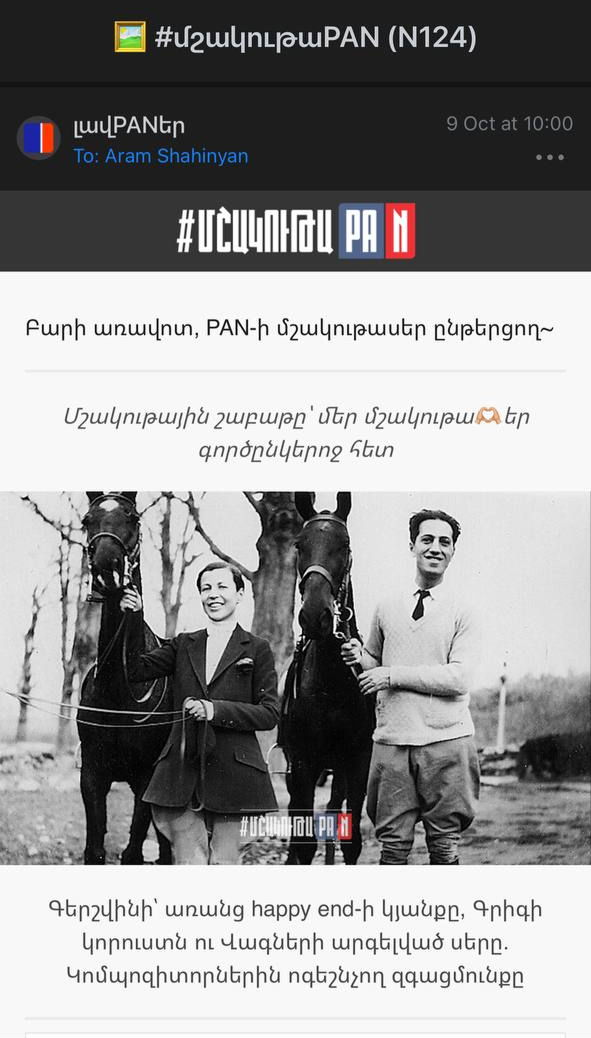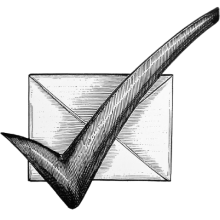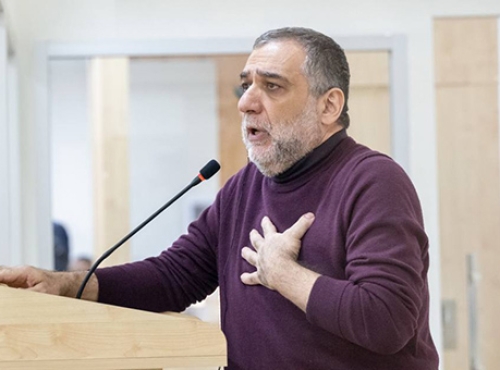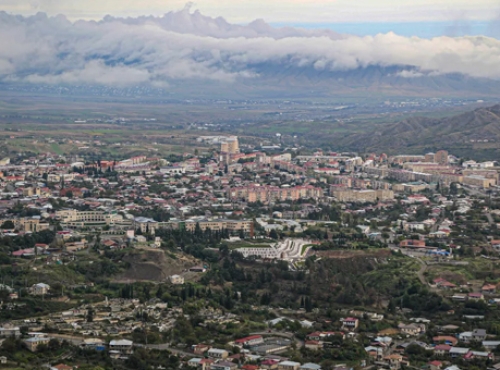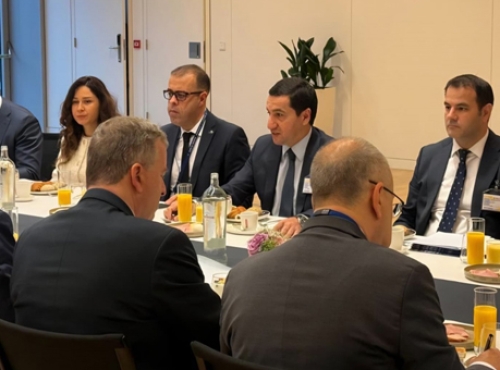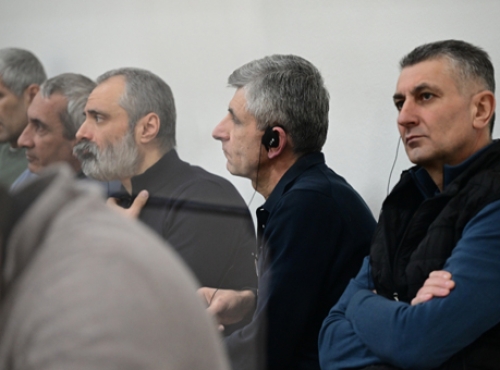In Baku, the fabricated trial of former Artsakh State Minister Ruben Vardanyan continues. On February 13, the prosecution presented the charges against him.
Baku has accused Vardanyan of organizing "Nemesis-2" against Azerbaijani diplomats. He is also charged with illegally crossing Azerbaijan's border in September 2022 and financing armed groups, supplying, and storing weapons through the Aurora foundation and other structures. Additionally, according to the indictment, Vardanyan allegedly paid members of illegal armed groups and collaborated with Vladimir Vardanov, the head of the VOMA organization, for the purpose of training militants.
According to Nasir Bayramov, head of the state prosecution support department of the General Prosecutor's Office, Vardanyan reached an agreement with representatives of the AKVA company operating in Russia to establish a joint venture that would produce anti-aircraft guided missiles, target detection systems, batteries, and radio transmitting devices.
Furthermore, it is claimed that Vardanyan “initiated negotiations for the acquisition of helicopter-type unmanned aerial vehicles for illegal armed groups, as well as for the construction of a factory for their production.” He is also accused of organizing the supply of electronic warfare systems.
The court rejected the defendant's lawyer's complaint regarding the impartiality of the judicial panel. The next court session, during which the reading of the indictment will continue, is scheduled for February 17.
Earlier, Siranush Sahakyan, a lawyer representing Armenian prisoners at the ECHR, shared some details about Ruben Vardanyan's trial, which were conveyed to Vardanyan's family by the local attorney. She reported that, in addition to the fabricated case comprising 422 volumes in Azerbaijani, it was revealed that the assigned translator, who was supposed to provide at least oral translation of the case materials (since written translation or even note-taking is not allowed), failed to provide proper oral translation and made serious errors.
In late December 2024, Vardanyan's case was transferred to the Baku Military Court. He stated that Azerbaijani investigators had falsified interrogation records and demanded a public trial with the participation of international journalists and humanitarian organizations. Vardanyan's case is being examined separately. He faces about 45 new charges under 20 articles of the Azerbaijani Criminal Code and is threatened with life imprisonment. On January 27, the court refused to transfer him to house arrest.









